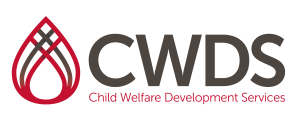CWDS Curriculum
Resource Family Approval
Level: Advanced
Credits: 24
Intended Audience: This training is geared toward training Child Welfare line staff, supervisors, and managers who will be working within the county’s RFA Program. The audience’s background may vary from those with licensing expertise, relative approval experience, adoption skills, etc.
Description of Course: The purpose of the Resource Family Approval Program is to implement a unified, family-friendly, and child-centered resource family approval process to replace the existing multiple processes for licensing foster family homes and approving relatives and non-relative extended family members as foster care providers, and approving families for legal guardianship or adoption. The RFA Program will eliminate duplication, coordinate approval standards, and provide a comprehensive assessment of all families.
A Resource Family shall be considered eligible to provide foster care for related and unrelated children in out-of-home placement, shall be considered and approved for adoption or guardianship, and shall not have to undergo any additional approval or licensure.
This training is intended to be delivered as written by a co-training team comprised of a trainer and a representative from California Department of Social Services RFA team. It may be delivered in 4 consecutive days or as individual day-long modules. The training weaves together the basic components and skills required to do practice of RFA.
Intended Objectives:
Knowledge
K1. The trainee will be able to define the RFA process and understand the foundational legislation and history, including how the Continuum of Care Reform (CCR) and the Quality Parenting Initiative (QPI) support and complement the RFA process.
K2. The trainee will understand his/her role and responsibilities in the RFA process.
K3. The Trainee will become knowledgeable about the impact of trauma, grief and loss on a child involved in the Child Welfare system and its impact on placement and permanency goals.
K4. The trainee will understand the importance of permanency and how he or she can facilitate timely permanency within the RFA system.
K5. The trainee will be familiar with the contents of the Written Directives and be able to locate the information contained within the document.
K6. The trainee will gain knowledge of how to approve Resource Families and the requirements for approving or denying families, including how to conduct a psychosocial assessment of the family.
K7. The trainee will understand the purpose of the comprehensive assessment, including the home environment, background checks and psychosocial assessments, and how these inform a holistic assessment of the family.
K8. The trainee will demonstrate an understanding about how to conduct Family visits within the context of RFA, as a way to engage Resource Families, for assessment purposes.
K9. The trainee will learn how to investigate complaints, including how to prepare, conduct and report findings of complaint investigations.
K10. The trainee will understand that teaming assists in developing “solutions” that are individualized to the family and their culture, community and tribes.
K11. The trainee will understand the practice of Cultural Humility and understand how this approach improves family engagement, shows respect for families and ensures assessments incorporate a family’s unique culture.
Skills
S1. The trainee will demonstrate the ability to conduct a psychosocial assessment including the permanency assessment components.
S2. Through role-playing activities, the trainee will be able demonstrate the ability to explain the RFA requirements (i.e. health screening, psychosocial assessment, home environment assessment, training requirements, etc.) and their purpose to potential caregivers entering the RFA system.
S3. The trainee will exhibit the ability and knowledge to summarize, evaluate and make a final determination through the composition of a written assessment.
S4. The trainee will be able to demonstrate the ability to conduct an Investigation, interview children, and balance findings.
S5. The trainee will demonstrate the ability to apply the Reasonable and Prudent Parent Standard when working with Resource Families.
S6. The trainee will demonstrate the ability to utilize teaming strategies to engage Resource families.
Values
V1. The trainee will value teaming with families and the practice of collaboration in order to achieve mutual goals, build upon family strengths, and ensure quality comprehensive written assessments are developed.
V2. The trainee will value that RFA prepares families to better meet the needs of vulnerable children in the foster care system and allows seamless transition to permanency.
V3. The trainee will value the importance of timely permanency and how trauma impacts children and families involved in the Child Welfare and Probation systems.
V4. The trainee will value the personal rights of children in foster care and how to ensure they are not being violated.
V5. The trainee will value that upfront training and ongoing services prepare caregivers to meet the needs of children, youth and young adults, and assists families with forming lifelong relationships.
Topics Include:
| Day One
|
|
| Day Two
|
|
| Day Three
|
|
| Day Four
|
|



